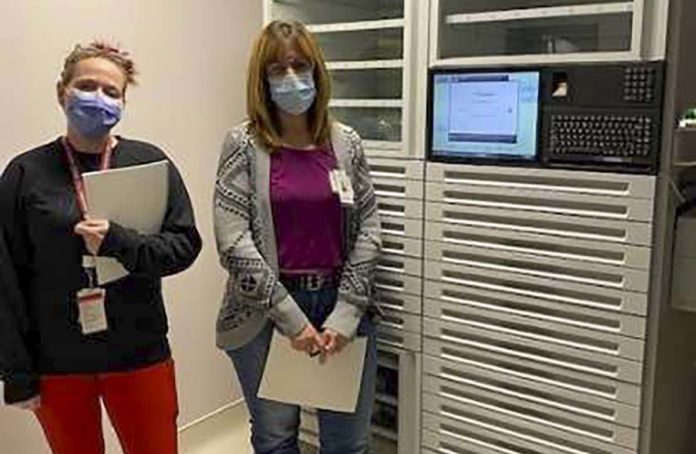SUDBURY—Public Health Sudbury and Districts (PHSD), through a letter of instruction from Medical Officer of Health Dr. Penny Sutcliffe, has the power to impose or reimpose restrictions to deal with the ongoing pandemic despite the lifting of many restrictions by the province, but according to Public Health Nurse Natalie Phillipe, RN that route has not been taken despite stubbornly high hospitalization numbers in the health unit’s catchment areas.
“Although we do have a high incidence rate and the virus has been spreading throughout the North, with Sudbury’s numbers around 270 per 100,000 and only 98 per 100,000 for the province as a whole, we remain cautiously optimistic,” said Ms. Phillipe. She noted that Manitoulin’s case numbers comprise about 11 percent of the Sudbury numbers. Relatively high, given the population differences between the two areas. “Omicron has been spreading widely,” she said. “But there is reason to be optimistic as the hospitalization rates have remained stable. They aren’t going down, but they aren’t rising either.”
Ms. Phillipe added that another reason for optimism is the high rate of vaccinations among the population and what appear to be milder symptoms being experienced by those who do contract the virus.
But she does caution against complacency, as although Omicron may usually be milder, that doesn’t mean it will be in all cases. “The government of Ontario is following key public health indicators,” she said. So, continuing to wear masks in certain indoor settings, washing your hands, keeping physical distance, all the personal things you can do to protect yourself are still advisable. “We do ask that you self-isolate for five days minimum if you are having symptoms.”
“It is also important to get vaccinated if you haven’t been and get a booster when you are qualified to receive one. The booster really does provide a greater level of protection.”
Ms. Phillipe points out that getting vaccinated or receiving a booster has never been easier. “Our clinics are not as crowded now and the lineups are much shorter,” she said. “There is no better time than now to get that needle.”
Although Omicron is the dominant strain out in the wild right now, there were incidents of the more serious Delta variant being found in the community last summer. “We do know that Delta is in the community,” she said. The exact data on the prevalence and types of virus in the community is not currently available, however, as the province discontinued the requirement for PCR (polymerase chain reaction) testing in favour of rapid testing and assuming you have the virus if you are exhibiting symptoms.
“The rapid tests will not tell you which variant of the virus you have when you test positive,” said Ms. Phillipe.
Although PHSD is recommending that people continue to take personal precautions to help limit the spread of the virus, Ms. Phillipe reaffirmed that health officials are becoming cautiously optimistic that the light is beginning to appear at the end of the tunnel in the pandemic.





